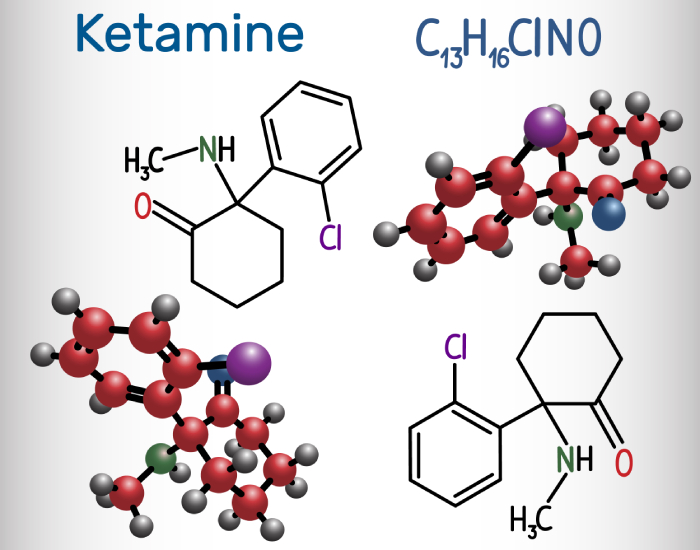The world of nutritional supplements is vast and sometimes overwhelming, but among the many options available, lycopene tablets have emerged as a particularly intriguing choice for health-conscious individuals. I’ve watched with great interest as lycopene has transformed from a lesser-known compound found in tomatoes to a widely sought-after supplement. The journey of understanding this powerful antioxidant begins with a simple question that many of my readers frequently ask: What makes this red pigment so special, and why should we consider taking it in supplement form? The answer, as we’ll discover, lies in its remarkable ability to support multiple aspects of human health, from cellular protection to aesthetic benefits.

Understanding Lycopene: Nature’s Red Defender and Cellular Guardian
The fascinating story of lycopene begins at the molecular level, where this remarkable compound performs its protective functions with remarkable efficiency. As a member of the carotenoid family, lycopene stands out for its unique molecular structure, which gives it unprecedented antioxidant capabilities. In fact, research has shown that lycopene is approximately twice as effective at neutralizing singlet oxygen (a particularly harmful type of free radical) compared to beta-carotene, and ten times more effective than alpha-tocopherol (vitamin E). This exceptional antioxidant capacity isn’t just impressive on paper – it translates to real-world benefits in human health, particularly in areas where oxidative stress plays a significant role in cellular damage and aging processes.
The Natural Source Advantage: Exploring the Rich World of Lycopene-rich Foods
Before delving into supplementation, it’s crucial to understand where lycopene naturally occurs in our diet. The relationship between lycopene and food sources is particularly interesting because its bioavailability varies significantly depending on how these foods are prepared and consumed. Tomatoes, especially in their processed forms like paste, sauce, and juice, represent the most concentrated natural source of lycopene, with levels increasing substantially during cooking. This cooking-induced concentration occurs because heat breaks down cell walls, making the lycopene more accessible to our digestive system. Beyond tomatoes, nature provides us with several other delicious sources: watermelon offers a refreshing way to consume lycopene, while pink grapefruit combines this powerful antioxidant with vitamin C for enhanced benefits. Papaya, red carrots, and red bell peppers round out the list of notable sources, each offering unique nutritional profiles that complement lycopene’s benefits.
The Compelling Case for Lycopene Tablets: Beyond Dietary Sources
While whole foods should always form the foundation of a healthy diet, the case for lycopene supplementation becomes particularly compelling when we consider several practical factors. First, achieving optimal lycopene levels through diet alone can be challenging, especially for individuals with dietary restrictions or those living in areas where fresh produce is limited or seasonal. Lycopene tablets offer a standardized, convenient solution to this challenge, providing a consistent dose that’s been specifically formulated for optimal absorption. Moreover, modern processing techniques have allowed manufacturers to create highly bioavailable forms of lycopene, often combining them with natural oils or other compounds that enhance absorption. This technological advancement means that supplements can sometimes offer better bioavailability than natural sources, particularly for individuals with compromised digestive systems or those taking medications that might affect nutrient absorption.
The Science Behind the Benefits: A Deeper Look at Research-Backed Advantages
The scientific community’s interest in lycopene has grown exponentially over the past two decades, with numerous studies highlighting its potential benefits across multiple health domains. Particularly noteworthy is lycopene’s role in cellular protection, where it acts as a powerful scavenger of free radicals. Research published in prestigious journals has demonstrated that lycopene’s antioxidant activity not only helps protect cells from oxidative damage but also supports the body’s natural DNA repair mechanisms. This cellular protection extends to various organ systems, with particularly strong evidence supporting its benefits for cardiovascular health, skin protection, and eye health. Furthermore, emerging research suggests that lycopene may play a role in supporting healthy inflammatory responses, making it a potentially valuable compound for overall wellness and aging support.
The Revolutionary Impact on Skin Health: Understanding Lycopene Benefits for Skin
The relationship between lycopene and skin health represents one of the most exciting areas of research in nutritional science. When we examine the mechanism of action, we find that lycopene accumulates in the skin’s layers, providing protection from within. This strategic positioning allows it to intercept and neutralize harmful UV radiation before it can cause significant damage to skin cells. Clinical studies have demonstrated that regular lycopene consumption, whether through diet or supplementation, can increase the skin’s natural SPF by up to 33% over 12 weeks. However, it’s important to note that this doesn’t replace the need for conventional sunscreen but rather works as an additional layer of protection. Beyond UV protection, lycopene has been shown to support collagen production and maintenance, leading to improved skin elasticity and reduced appearance of fine lines. The compound achieves this by protecting existing collagen structures from oxidative damage while simultaneously supporting the body’s natural collagen synthesis pathways.
Vision Protection: The Crucial Role of Lycopene Benefits for Eyes
The human eye, with its delicate structures and constant exposure to oxidative stress, benefits significantly from lycopene’s protective properties. Recent research has revealed that lycopene accumulates in the eye’s tissues, particularly in the macula and lens, where it provides critical protection against light-induced damage. Studies conducted at prominent ophthalmological research centers have shown that individuals with higher lycopene intake demonstrate better retention of visual acuity as they age. The compound appears to work through multiple mechanisms: it filters harmful blue light, reduces oxidative stress in retinal cells, and supports the natural repair mechanisms within the eye. Furthermore, lycopene has been found to work synergistically with other eye-protective nutrients like lutein and zeaxanthin, creating a comprehensive shield against age-related vision decline.
The Power of Combination: The Synergistic Effects of Astaxanthin and Lycopene
One of the most promising developments in antioxidant research involves the combination of lycopene with astaxanthin, often referred to as the “king of carotenoids.” This partnership has shown remarkable potential in enhancing overall antioxidant protection. Laboratory studies indicate that when these compounds are combined, they create a more robust antioxidant network than either compound alone. The synergy appears to stem from their complementary mechanisms of action: while lycopene excels at neutralizing singlet oxygen and peroxyl radicals, astaxanthin shows particular effectiveness against hydroxyl radicals and superoxide anion radicals. This comprehensive coverage provides superior protection against various types of oxidative stress, potentially offering enhanced benefits for cardiovascular health, skin protection, and athletic recovery.
Navigating the Supplement Market: A Comprehensive Guide to Lycopene Powder and Tablets
The market for lycopene supplements has evolved significantly, with various formulations now available to consumers. Understanding the differences between these forms is crucial for making an informed choice. Lycopene powder, often encapsulated for convenience, typically offers better absorption rates compared to traditional tablets, particularly when formulated with lipid-based delivery systems. When evaluating supplements, several key factors deserve attention: the source of lycopene (natural vs. synthetic), the presence of complementary ingredients that enhance absorption, and the manufacturing standards employed. Look for products that undergo third-party testing and provide clear documentation of their lycopene content. The optimal dosage can vary based on individual needs and health goals, but most research suggests that doses between 15-30mg daily provide significant benefits while maintaining an excellent safety profile.
Implementation Strategies: Maximizing the Benefits of Lycopene Supplementation
Success with lycopene supplementation relies heavily on proper implementation strategies. Timing plays a crucial role in absorption – taking lycopene supplements with meals containing healthy fats can increase bioavailability by up to 400%. This dramatic improvement occurs because lycopene is fat-soluble, meaning it requires dietary fat for optimal absorption. Additionally, spreading the daily dose across multiple meals may improve overall absorption compared to taking the entire amount at once. For those using multiple supplements, it’s worth noting that lycopene shows positive interactions with various nutrients, particularly vitamin E and other carotenoids. However, extremely high doses of beta-carotene may compete with lycopene for absorption, suggesting that these supplements should be taken at different times if both are part of your regimen.

Looking Ahead: Future Developments and Research Directions
The field of lycopene research continues to expand, with new studies regularly uncovering additional benefits and applications. Current research focuses on several promising areas: the potential role of lycopene in supporting cognitive function, its impact on athletic performance and recovery, and its possible applications in personalized nutrition programs based on genetic profiles. Emerging technologies in supplement manufacturing are also leading to more bioavailable formulations, potentially allowing for lower doses while maintaining or even enhancing benefits. As our understanding of nutrigenomics advances, we may soon be able to identify individuals who would benefit most from lycopene supplementation based on their genetic makeup, leading to more targeted and effective supplementation strategies.
Making an Informed Decision: Personalizing Your Approach to Lycopene Supplementation
The decision to incorporate lycopene tablets into your wellness routine should be based on a careful evaluation of your individual needs, lifestyle factors, and health goals. Consider your current dietary intake of lycopene-rich foods, exposure to environmental stressors, and specific health concerns that might benefit from increased lycopene intake. Working with a healthcare provider can help determine the optimal dosage and timing for your specific situation. Remember that supplementation works best as part of a comprehensive approach to health, including a balanced diet, regular exercise, and adequate sleep. Monitor your response to supplementation and be prepared to adjust your approach based on observed results and emerging research.
Evidence-Based Wellness Decisions: Moving Forward with Lycopene
The journey through the world of lycopene supplementation reveals a compelling story of nature’s wisdom transformed into accessible wellness solutions. The evidence supporting lycopene’s benefits continues to grow, particularly in the areas of skin health, vision protection, and cellular defense. Whether obtained through lycopene-rich foods or high-quality supplements, this powerful antioxidant deserves consideration in any well-rounded approach to health and wellness.
As we’ve explored, the decision to supplement with lycopene tablets should be based on individual needs, lifestyle factors, and health objectives. The key is to approach supplementation with informed awareness, understanding that while lycopene offers significant benefits, it works best as part of a comprehensive wellness strategy that includes proper nutrition, regular exercise, and lifestyle optimization.
Remember that the field of nutritional science continues to evolve, and new research may reveal additional benefits of lycopene supplementation. Stay informed about the latest developments, but always approach new findings with a balanced perspective, consulting healthcare professionals when necessary to ensure your supplementation choices align with your overall health goals.
For those interested in exploring lycopene supplementation, start with high-quality products from reputable manufacturers, and pay attention to your body’s response. The journey to optimal health is personal, and lycopene – whether from natural sources or supplements – may play a valuable role in supporting your wellness objectives.
Through careful consideration of the evidence, personal needs, and professional guidance, you can make an informed decision about incorporating lycopene into your daily routine, potentially adding another layer of protection to your body’s natural defense systems.



